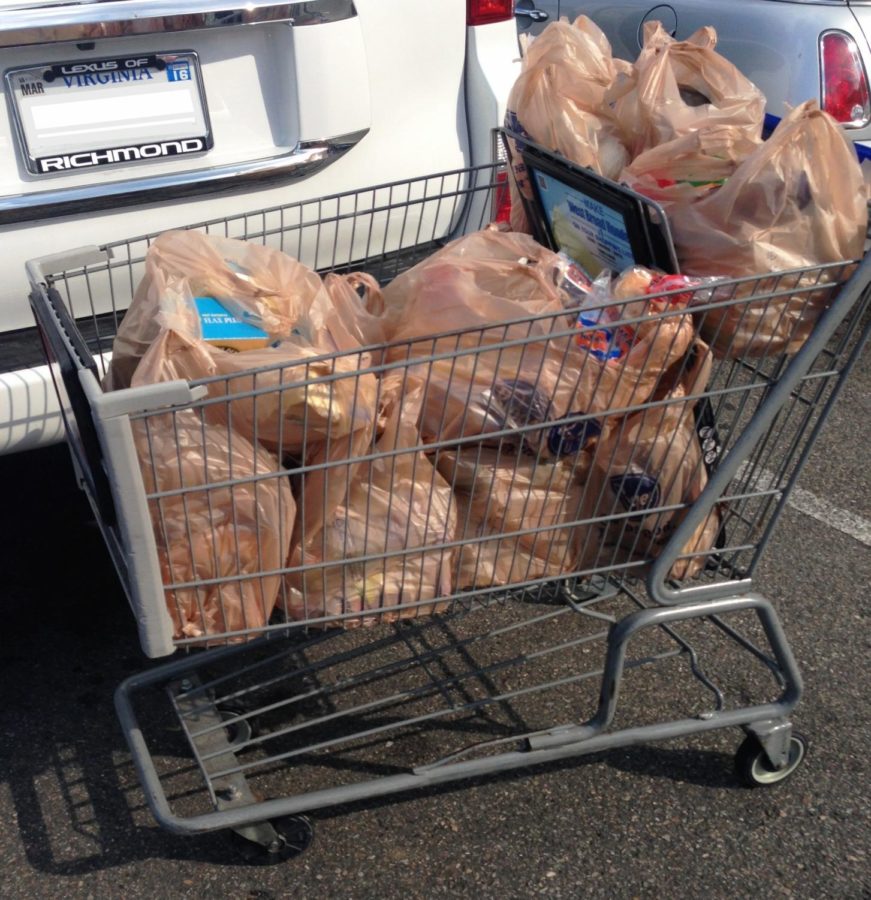Pleasantville Disposes of Plastic Bags to Help the Environment
Starting next semester, when Pace students go grocery shopping at Key Food, they will not be able to bring their groceries back to campus using plastic bags. Currently, shoppers can buy plastic bags when checking out, but starting on August 1, only recyclable paper bags will be available for purchase.
Starting in 2018, the Village Board of Pleasantville had multiple hearings about the role—or lack thereof—that plastic bags should have in its residents’ lives. Because of the environmental damage that can come from plastic bags, this initiative is meant to encourage people to use reusable bags rather than plastic bags that are typically only a single-use item.
Plastic bags are not biodegradable. Over time when they do break down, they become toxins that can contaminate soil and waterways. This contamination negatively affects wildlife as animals like birds can get tangled in them while other animals like fish can die from ingesting them. Furthermore, plastic bags often end up as litter on land and in waterways. Very few plastic bags are recycled, so the vast majority of the hundreds of billions of plastic bags that are used across the world each year end up as pollutants.
It often falls on local communities to clean up plastic bags that litter their roads, trees, and streams. For example, Yonkers spends about $31,000 per year on just cleaning up plastic from its streets and sewers.
Along with plastic bags, paper bags are also only available for purchase. The production of paper bags often emits toxic chemicals into the air and waterways because of the large amounts of water, energy, and chemicals that are needed for production. But paper bags will continue to be available for purchase even when plastic bags are not.
Most stores in Pleasantville are affected by this carryout bag ordinance. Exceptions include stores like restaurants and delis that receive almost all of their revenue from selling prepared food to customers.
A local environmental group, PleasantvilleRecycles, has been involved with this ordinance since the beginning. The group, which works to improve and expand recycling in Pleasantville, proposed and presented legislation on the topic to the Village Board.
Even though there has been a lot of support in the community for banning plastic bags, there have also been critiques on whether it is actually more beneficial for the environment to rely heavily on reusable bags like cloth tote bags. Multiple studies have asserted that because of the environmental damage done through the production of paper bags and cloth bags, these bags must be used hundreds or thousands of times before they have the same environmental footprint as plastic bags. This information means that if a cloth bag is not being reused thousands of times, it is likely worse for the environment than a plastic bag.
However, there is more to the debate of plastic bags than these studies show. Looking at all of the different categories of how bags impact the environment, it is impossible for one type of bag to be the best in every category. Each type of bag has different environmental impacts because of resources used, the manufacturing process, climate change, and more.
A member of PleasantvilleRecycles, Danielle Berry-Gass, said that it can be difficult to find a balance when there are competing environmental interests at stake.
“When thinking about balance, in many ways everyone is right and everyone is wrong,” Berry-Gass explained. “Sometimes you have to consider the source. Is the study funded by a petroleum or grocery lobby? Or maybe a group that is trying to protect waterways near or around paper manufacturing? It’s really tough. We find constantly that even education on the do’s and don’ts of recycling can be difficult.”
In some ways, reusable cloth bags are better for the environment. In other ways, plastic bags are better. It depends on what environmental impacts people prioritize.
“In the end, we looked at longevity and decided that a fee to ban for plastic and a continual fee for paper made the most sense,” said Berry-Gass.
This ordinance affects not only the environment, but also many Pace students who do their shopping at Key Food or convenient stores in Pleasantville. Students will have to remember to bring their own bags or pay for paper bags.
First-year Pace nursing major Emma Sloan shops at Key Food about once every two weeks. She usually buys one or two plastic bags for her groceries, but she finds the process frustrating.
“I go to the self-check out and you need to buy the bags after you finish scanning all your items,” Sloan explained. “So you’re just standing there holding up the entire line to pack your groceries. Also, it takes the employee a solid three minutes to get the bags for you.”
Even though she currently buys plastic bags, Sloan is still supportive of Pleasantville’s ordinance to ban them.
“It’ll be annoying, and everyone will need to adjust and get used to the new conditions of having to bring your own reusable bags, but in the end, it’ll be good,” said Sloan.
To get involved with PleasantvilleRecycles, the group advises to email them on their website. There is also a local Climate Smart committee that students can get involved with.
Your donation supports independent, student-run journalism at Pace University. Support the Pace Chronicle to help cover publishing costs.

